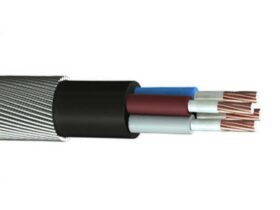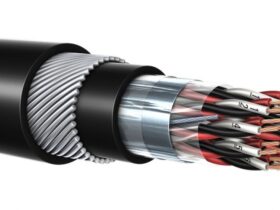Instrumentation cables are specialized cables used to transmit signals and power between various industrial instruments, sensors, and devices. These cables are used in a variety of applications, including process control, automation, and measurement and monitoring systems.
Here are some key features of instrumentation cables:
- Shielding: Instrumentation cables are often shielded to reduce electromagnetic interference (EMI) and radio frequency interference (RFI), which can affect signal quality and accuracy.
- Multiple cores: Instrumentation cables often have multiple cores or pairs of conductors, which can transmit a variety of signals and power.
- Voltage and temperature ratings: Instrumentation cables are designed to operate within specific voltage and temperature ranges, which can vary depending on the application and environment.
- Durability: Instrumentation cables are made with high-quality materials that are designed to withstand harsh environments and conditions, including temperature extremes, moisture, and chemicals.
- Compatibility: Instrumentation cables are compatible with a variety of connectors and communication protocols, making them suitable for a wide range of applications and devices.
Overall, instrumentation cables are a critical component of many industrial automation and control systems. They are designed to provide reliable signal transmission and power supply, while also protecting against interference and maintaining signal accuracy. The right selection and installation of instrumentation cables can improve system efficiency, reliability, and safety.














Leave a Reply